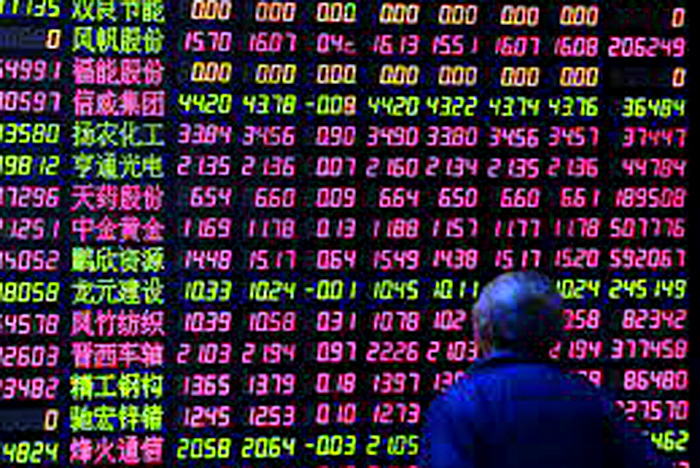Monday, Chinese and Hong Kong stocks went down because people were getting more worried about new COVID-19 lockdowns. Asian markets also went down because strong U.S. jobs data made it more likely that the Federal Reserve would raise interest rates even more sharply.
The worst performer in the region was Hong Kong’s tech-heavy Hang Seng Index, which fell 1.4%. Baidu Inc. (HK: 9888), Alibaba Group Holding Ltd. (HK: 9988), and Tencent Holdings Ltd. (HK: 0700), which are all big tech companies, fell between 1.9% and 3%, making them the most important companies on the index.
Related: Tokyo stocks fall before the US jobs report comes out.
The Shanghai Shenzhen CSI 300 blue-chip index in China went down by 0.6%, but the Shanghai Composite index stayed the same. People’s feelings about Hong Kong and China got worse over the weekend after the government put new rules in place in Shenzhen and Chengdu to stop COVID-19 cases from coming back.
As part of its zero-COVID policy, Beijing has put in place a number of restrictions this year, and the lockdowns are the latest. This year, China’s economy has been hurt by the fact that the government won’t change its policy.
This year, Chinese stocks have dropped sharply, and the yuan has hit lows not seen in two years.
Still, data released on Monday showed that China’s services sector grew more than expected in August. This could be a sign that the country is starting to get better after the pandemic.
Broader After news came out on Friday that nonfarm payrolls in the U.S. grew more than expected in August, Asian stock markets went down. The reading gives the Fed more room to continue to raise interest rates quickly in 2022.
Traders now think there is a 57% chance that the Fed will raise rates by 75 basis points in September.
The PSEi Composite in the Philippines fell 0.6% and did the worst in Southeast Asia.
The KOSPI index in South Korea went down 0.3%. Typhoon Hinnamnor, one of the worst storms South Korea has seen in recent years, is likely to cause problems for the country’s economy.
Related: India stocks were all over the place as trading ended; the Nifty 50 fell 0.02%.
On the other hand, Australia’s S&P/ASX 200 rose 0.2% after data showed that the country’s services sector grew unexpectedly in August. In Australia, second-quarter profits also grew more than expected.

